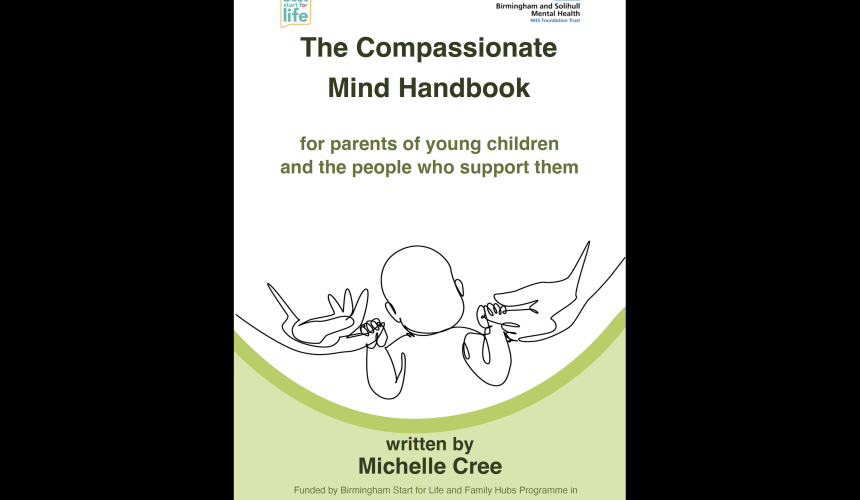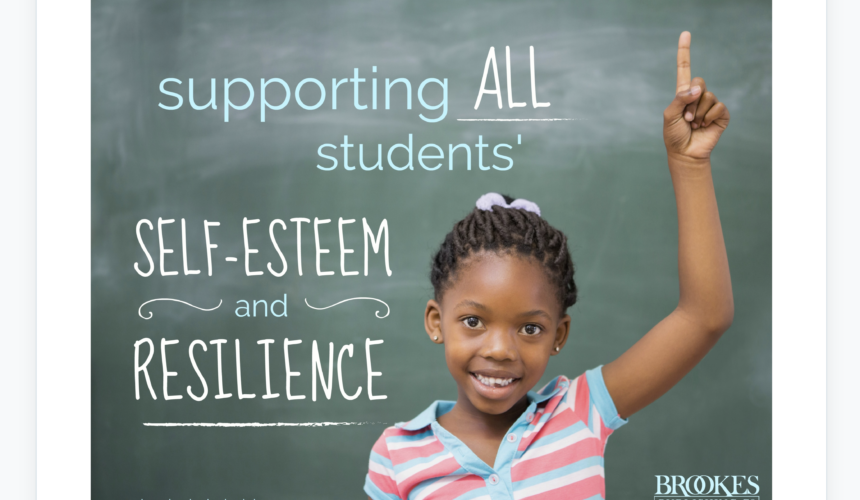

“Be the one who nurtures and builds. Be the one who has an understanding and a forgiving heart one who looks for the best in people. Leave people better than you found them.”
Marvin J. Ashton
Self-esteem is how someone thinks or feels about themselves. The self, or rather our sense of self, is formed through our relationships with others or feeling good about praise you received. These experiences of others’ responses and recognitions inform us of our sense of worth and highlight the importance of early relationships and connectedness. These early relationships and connectedness are key conceptions in the theory of attachment.
For information about what Resilience means and why it is important to the wellbeing and healthy functioning of young people please visit our primary school focused page on self-esteem.
Teacher wellbeing
As with all matters of wellbeing, taking time to focus on areas such as emotional intelligence and social confidence helps to build an outlook that feeds into the interactions a teacher has with the young people they support. Whilst we are preparing ourselves to help others we must also look after ourselves. We’ve got some advice and guidance on this in the teacher wellbeing section.
How can teachers foster self-esteem in children?
Teachers play an important role in nurturing a student’s sense of dignity and self-worth.
Research about resilience highlights the significant influence of even one adult to help children with learning and attention problems become increasingly hopeful and successful. For more information, please refer to our section on resilience.

Positive, charismatic teachers
How can teachers serve as charismatic adults? For strategies bolstering students’ self-esteem and resilience to be effective, it is important for teachers to uphold a positive mindset, or set of assumptions, about themselves and their students. Some of the main features of this mindset are:



Accept Students for Who They Are Every child is unique, but sometimes even teachers who embrace that idea may still treat their students as if they were all the same. When students are in a learning environment where everyone is treated the same in the name of ‘fairness,’ it can have a powerfully negative impact on self-esteem. Students whose needs aren’t being met may begin to feel they aren’t welcome, or that they’re disappointing the teacher by not living up to expectations. It may help to have encouraging posters around the classroom.
Help Students Develop a Sense of Responsibility Making a positive difference in the school community is a great way to build students’ self-esteem and resilience. When students are encouraged to contribute to the community, it gives them a sense of ownership and pride. Look for special strengths, interests, and gifts in your students and help translate those gifts into responsibilities they can assume.
Increase Students’ Sense of Ownership It’s tempting to solve students’ problems by telling them what to do, but it’s even better to give them opportunities to solve problems by themselves. When students believe they have some degree of control over their lives, it can be a big boost to their self-esteem and resilience.
Help Students Establish Self-Discipline Students who have trouble developing self-discipline also have more trouble developing self-esteem and resilience. These are the students who ‘act before they think’ and often express opposition to limits, rules, and structure. To increase understanding of the need for rules – and motivation to follow them – involve your students in the process of establishing the classroom rules.
Promote Self-Advocacy Skills Strong self-advocacy skills lead to greater self-confidence, but many students with learning or behavioural challenges may struggle to develop these skills. Consider how can you boost your students’ ability to communicate with adults and advocate for their own needs.
Provide Positive Feedback and Encouragement When you communicate genuine, realistic appreciation and encouragement to your students, it’s a powerful way to nurture self-esteem and resilience. Too often, though, the focus falls on students’ negative behaviours, and therefore their positive gifts, qualities, and strengths aren’t sufficiently nurtured or recognised. It is important to make a consistent effort to focus on students’ positives more than their negatives and back that up with words and actions of support. They don’t have to be grand gestures; just writing a little note on a student’s paper praising their effort can increase their motivation and sense of self-worth. These small encouragements are especially crucial for at-risk students or learners with disabilities, who may feel discouraged when their progress is slow.
Teach Students to Cope with Mistakes and Failure Fear of failure is a powerful thing. Most people worry at least a little about making mistakes and looking foolish in front of others. Don’t let fear of mistakes and failure affect your students’ success – intervene early by framing them as learning experiences.
Encourage Positive Self-Talk in Students Frequently asking children to think of and write down positive things about themselves helps to improve self-esteem and resilience over time. This may involve activities where pupils say positive affirmations aloud in the classroom.
If a young person is identified as suffering from low self-esteem, then having yourself and the parents working together to provide consistent support is highly advantageous for any intervention’s chances. Sometimes, however, parents are not aware or equipped with knowledge of how to support their child’s mental wellbeing and may even be suffering with aspects of mental health themselves. This is where being able to direct parents to sources of information and support in their local communities can result in a big positive step for both child and parent. For more general information on parents see our .
Put simply, self-esteem is how someone thinks or feels about themselves. Our sense of self is formed through our relationships with others, and this can occur in what is presently being experienced, like feeling good about praise you received in a meeting you just had, or feeling bad about upsetting a friend in the past. These experiences of others’ responses and recognitions inform us of our sense of worth and highlight the importance of early relationships and connectedness. These early relationships and connectedness are key conceptions in the theory of attachment.
Low self-esteem is a risk factor for the development of mental health problems, as outlined in risk models of early intervention. Over time, a young person with low self-esteem can begin a process of psychological defence-building, removing themselves from activities and interactions altogether and building a negative worldview to normalise how they are feeling and perceive their role in the world. This can make it much harder to communicate with a young person, diminishing our abilities to support them.
As a young person cannot always predict what feedback they will get from those around them, teachers can step in and try to the promote a young person’s positive aspects, being mindful that whilst a young person might recognise they should be valued they might not feel it.

( resources found)














How useful was this info?
Click on a star to rate it!
![]()
© Copyright Breathe 2020- 2024
Terms and Conditions | Privacy Policy
supporters & partners 



![]()
